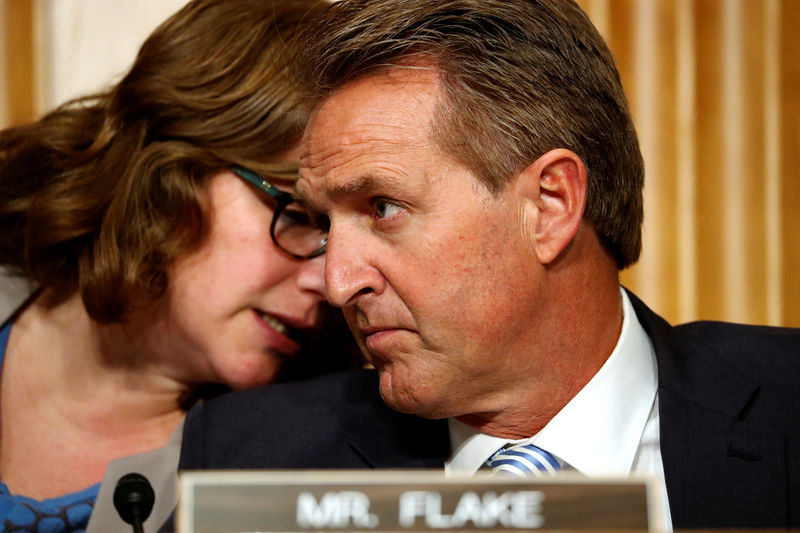By Patricia Zengerle and Idrees Ali
WASHINGTON (Reuters) - President Donald Trump's top national security aides pushed back on Monday against U.S. lawmakers calling for a new congressional war authorization, saying it would be a mistake to impose geographic or time limits on the campaign against Islamic State and other militant groups.
"War is fundamentally unpredictable," Secretary of Defense Jim Mattis told a Senate hearing about a potential new authorization for the use of military force, or AUMF, Congress' most significant step in years toward taking back control of its constitutional right to authorize war.
Mattis and Secretary of State Rex Tillerson both told the Senate Foreign Relations Committee it would put U.S. forces at risk if existing authorizations were repealed without new ones in place. They said they do not need a new AUMF to justify ongoing military action.
"The 2001 AUMF provides statutory authority for ongoing U.S. military operations against al-Qaeda; the Taliban; and associated forces, including against the Islamic State in Iraq and Syria, or ISIS," Tillerson said.
Republican and Democratic members of Congress have argued for years that Congress ceded too much authority over the military to the White House after the Sept. 11, 2001, attacks. But divisions over how much control they should exert over the Pentagon have stymied repeated efforts to pass a new AUMF.
Republican Senator Jeff Flake, who proposed an authorization with Democratic Senator Tim Kaine, said Congress should "buy in" to military conflicts by exerting its constitutional authority to declare war.
"Here in the Senate, we aspire to be more than just a cog in a feedback loop," Flake said. He argued that passing an AUMF would send an important message that Washington is unified to U.S. troops, allies and adversaries.
"We have a job to do," Kaine said, questioning whether resistance to a new AUMF was simply opposition to congressional oversight.
Concerns intensified this month after four U.S. soldiers were killed in Niger, and previously over Trump's talk about the possibility of an attack on North Korea and an April attack on an airfield in Syria.
Republican Senator Bob Corker, the committee's chairman, said the ambush in Niger shows U.S. forces "can find themselves in combat at any moment."
'GLOBAL, ENDLESS, SHADOW WAR'
Congress has not passed an AUMF since the 2002 measure authorizing the Iraq War. But the legal justification for most military action for the past 16 years is the older authorization passed days after the Sept. 11 attacks, for the campaign against al Qaeda and affiliates.
Backers of a new AUMF say the 2001 authorization has let presidents wage war wherever they like, without answering to Congress, or the public. For example, Islamic State did not exist in 2001.
"I do not think the American people want the United States conducting a global, endless 'Shadow War,' under-the-radar, covert and beyond scrutiny," said Senator Ben Cardin, the top Democrat on the foreign relations panel.
Mattis said he was not averse to a new authorization. But he said imposing limits would help the non-state actors who are America's adversaries in a "non-traditional" war spanning much of the globe.
"If the enemy hopes we are going to quit on a certain day, or if they know we won't deal with them if they step over a certain border, then the enemy is going to do exactly that," Mattis said.
Trump's fellow Republicans control majorities in both the Senate and House of Representatives but there are deep divisions over any possible new authorization within the party, as well as between Republicans and Democrats.
While some Republicans echo Flake in calling for Congress to weigh in, more hawkish lawmakers say military commanders should decide how to fight America's enemies.

Some Democrats say they want an AUMF limiting why, where and for how long U.S. forces can be sent to fight, but others refuse to go on the record supporting any conflict.